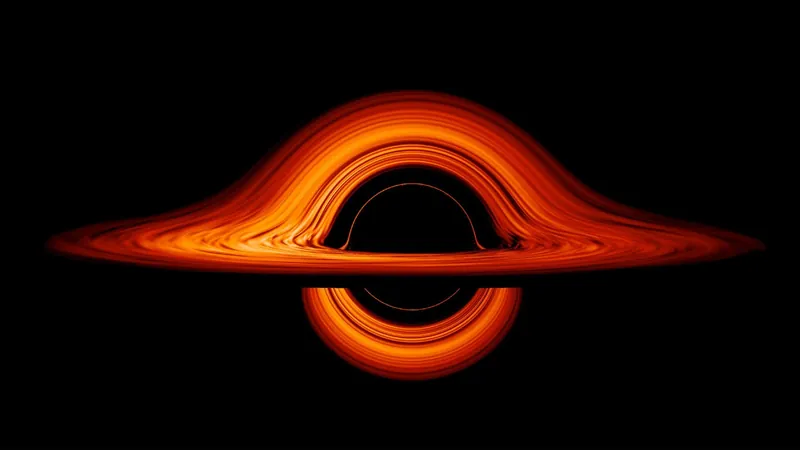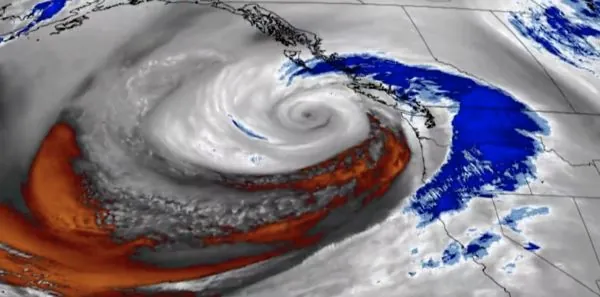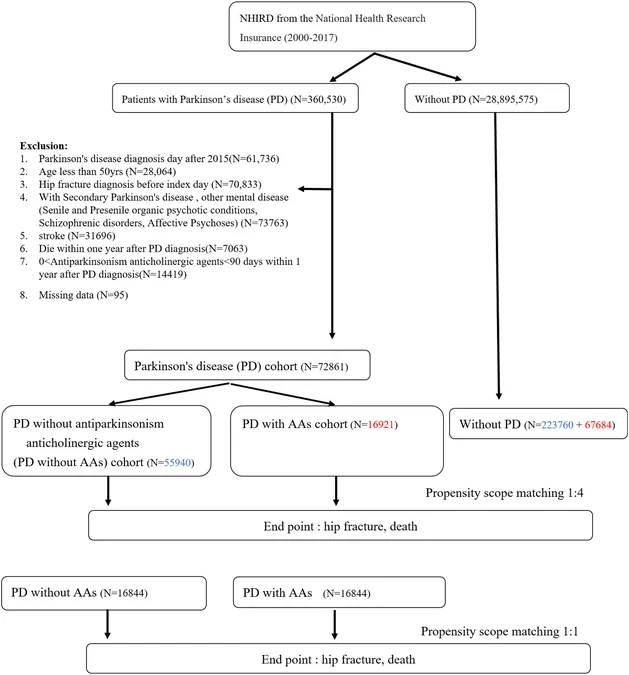
Unlocking the Secrets of Black Holes: Bridging Classical Physics and Quantum Mechanics
2024-11-23
Author: Olivia
A Look into the Cosmic Censorship Conjecture
The study dives into one of physics' most intriguing concepts: the cosmic censorship conjecture. At the heart of a black hole lies a singularity, a point of infinite density where the known laws of physics cease to function coherently. According to this conjecture, these singularities remain hidden behind event horizons — boundaries from which no light can escape — ensuring that the unpredictability of naked singularities is kept at bay.
Yet, there are scenarios where classical physics has failed to uphold this spectacle of cosmic censorship. Notably, in three-dimensional models, naked singularities can emerge. Researchers theorize that in these contexts, quantum effects have the potential to create event horizons, thereby concealing the singularities.
The Penrose Inequality and its Quantum Extension
The Penrose inequality is a key player in this research, offering a lower bound on the mass contained within a specific spacetime, correlating it with the area of a black hole's event horizon. Building on this idea, the researchers proposed the quantum version of the Penrose inequality, which aims to extend these concepts to also encapsulate quantum matter and energy.
Despite much effort, previous attempts to apply these inequalities in three-dimensional cases have encountered limitations, particularly when addressing strong quantum backreactions — the interactions between energy, matter, and spacetime curvature.
This is where braneworld holography comes into play: a sophisticated framework leverages the holographic principle to arrive at precise solutions to semi-classical gravitational equations, elegantly handling backreaction effects across multiple dimensions. Essentially, this approach allows researchers to analyze quantum effects in black hole physics in a controlled manner.
Breakthroughs in Understanding Black Hole Stability
The team's findings are illuminating. They successfully extended both the classical Penrose inequality and reverse isoperimetric inequality to encapsulate quantum effects, confirming their applicability to all known black holes within three-dimensional Anti-de Sitter (AdS) space.
Their work hints at a novel form of quantum cosmic censorship, providing critical bounds on black hole and matter entropy. The researchers assert that should the entropy of black holes and surrounding matter surpass the total energy of their spacetime, the formation of naked singularities could transpire, potentially unraveling the fabric of predictable physics.
Moreover, this research uncovered that black holes violating the reverse isoperimetric inequality, termed superentropic black holes, could be thermodynamically unstable. The insights garnered from this exploration open new avenues in the realm of quantum information theory, underscoring how understanding black hole physics could lay the groundwork for grasping fundamental quantum principles.
The implications of these discoveries could reshape theoretical physics, providing a framework that connects classical black hole dynamics with quantum mechanics, thus inviting us further into the mesmerizing mysteries of the universe. The potential for advancements in quantum information theory stemming from this work highlights an exciting frontier in contemporary scientific exploration.









 Brasil (PT)
Brasil (PT)
 Canada (EN)
Canada (EN)
 Chile (ES)
Chile (ES)
 España (ES)
España (ES)
 France (FR)
France (FR)
 Hong Kong (EN)
Hong Kong (EN)
 Italia (IT)
Italia (IT)
 日本 (JA)
日本 (JA)
 Magyarország (HU)
Magyarország (HU)
 Norge (NO)
Norge (NO)
 Polska (PL)
Polska (PL)
 Schweiz (DE)
Schweiz (DE)
 Singapore (EN)
Singapore (EN)
 Sverige (SV)
Sverige (SV)
 Suomi (FI)
Suomi (FI)
 Türkiye (TR)
Türkiye (TR)